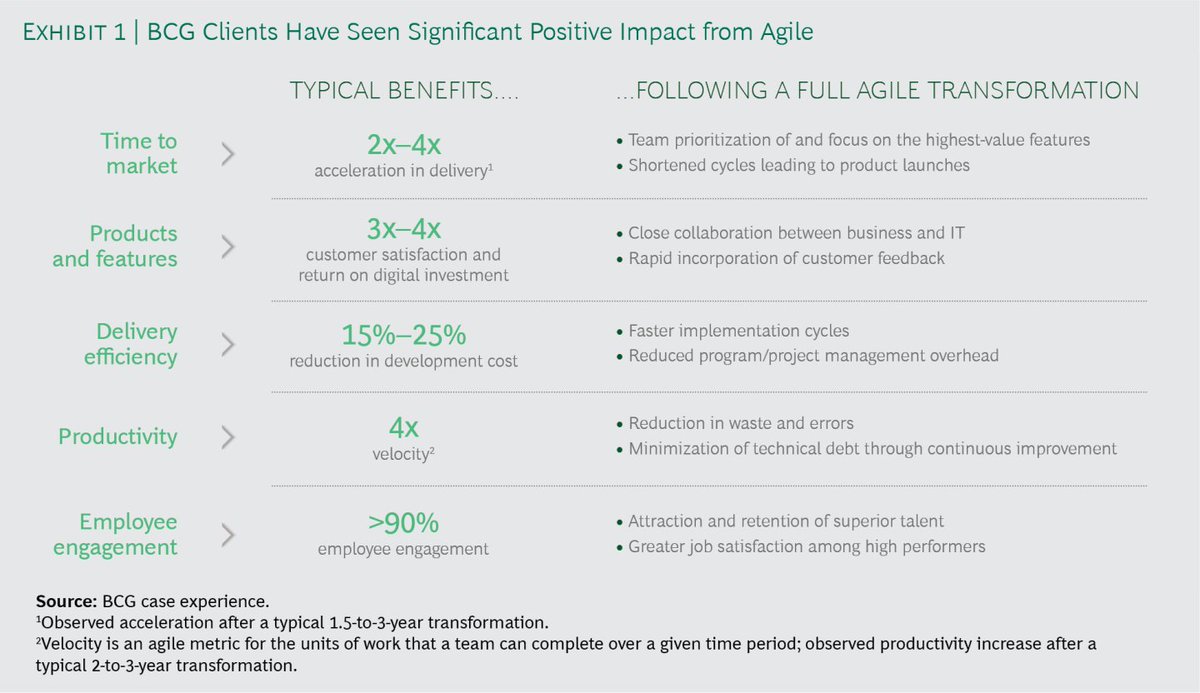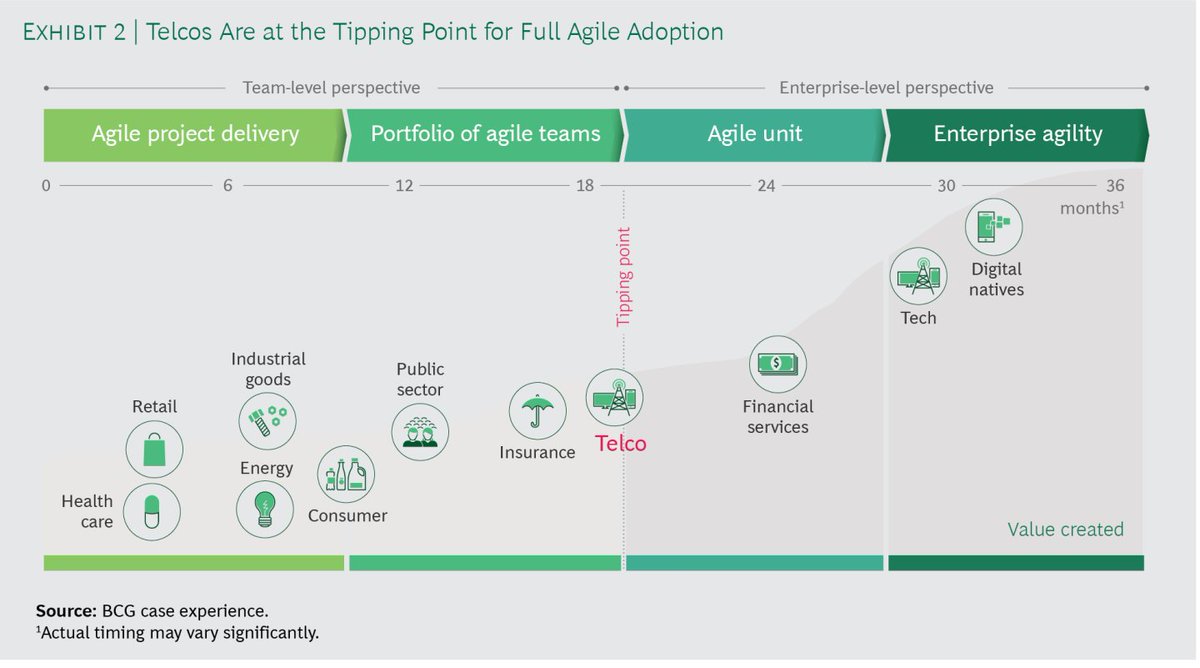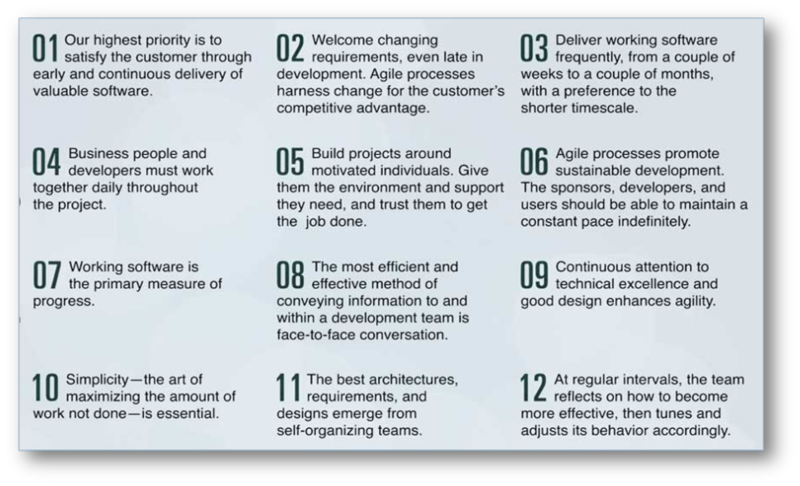
Internet + Telco veteran & investor #BlackRock @KSenanu shared great piece from @BCG on agility in the context of #telco #Mobile . Worth a read given that many are struggling with the move @PeterNdegwa_ has made @SafaricomPLC. It does have its challenges BUT upside is great! 

As agile has expanded beyond its origins in software development, telecommunications companies have actively explored taking agile ways of working beyond their software delivery teams.
Approximately 2/3 of telcos globally have run agile pilots or developed portfolios of agile teams. But only a few have made the transition to agile at scale—applying agile to the operations of a full business unit, to their network delivery, or to the enterprise as a whole.
It’s not for lack of results. Around the world, we have seen telcos increase process development speeds while reducing costs by 20% to 50%. 

Some have increased release cycle times for new products by 10X and reduced marketing expenses by 60%. 

In other industries, companies that have fully transitioned to agile have reduced dev costs by 15% to 25%, improved customer satisfaction, hit 4x #ROI on digital investment , accelerated new product delivery by 200% to 400%, and achieved better than 90% employee engagement 

Telcos are at a tipping point for agile deployment. A fundamental change in the way of working is about to take hold. But many leaders are unsure whether now is the right time to make the transition—or, if it is, where they should start or how they should roll it out. 

All companies encounter plenty of hurdles and risk falling into various traps when trying to scale up agile. These include taking half measures or ending up with a two-speed organization or ways of working that are agile in name only.
Because of the telco business’s structure and features, telcos face a set of industry-specific challenges, including those related to team structure, vendor management, risks and interdependencies, consistency, and culture and leadership. This last hurdle is especially high
Historically High Costs of Failure. Telcos are accustomed to making big bets, and the cost of betting wrong can be high. If the network goes down, even for a few minutes, the reputational impact is severe, and the implications for the business can be serious.
Revenue growth is so hard to come by that many telcos focus primarily on retaining customers and protecting the near-term revenue base. These priorities, combined with high capex (such as for network upgrades) and long payback periods, have led to a high intolerance for risk.
Legacy IT Systems and a Broad Network. The complex technology landscape in telecommunications creates challenges in and of itself.
Outsourced Support and a Broad, Organized Labor Force. Partners or vendors manage many layers of the telecommunications stack—and for agile to be successful, all of them need to be involved in the change, which can create thickets of complexity that must be cut through.
Large Interrelated Portfolios. Telecommunications products are significantly more integrated than products in industries such as banking or insurance, and this complicates any effort to introduce organizational change.
Complete the read on how to best navigate here - bcg.com/publications/2… 

• • •
Missing some Tweet in this thread? You can try to
force a refresh






